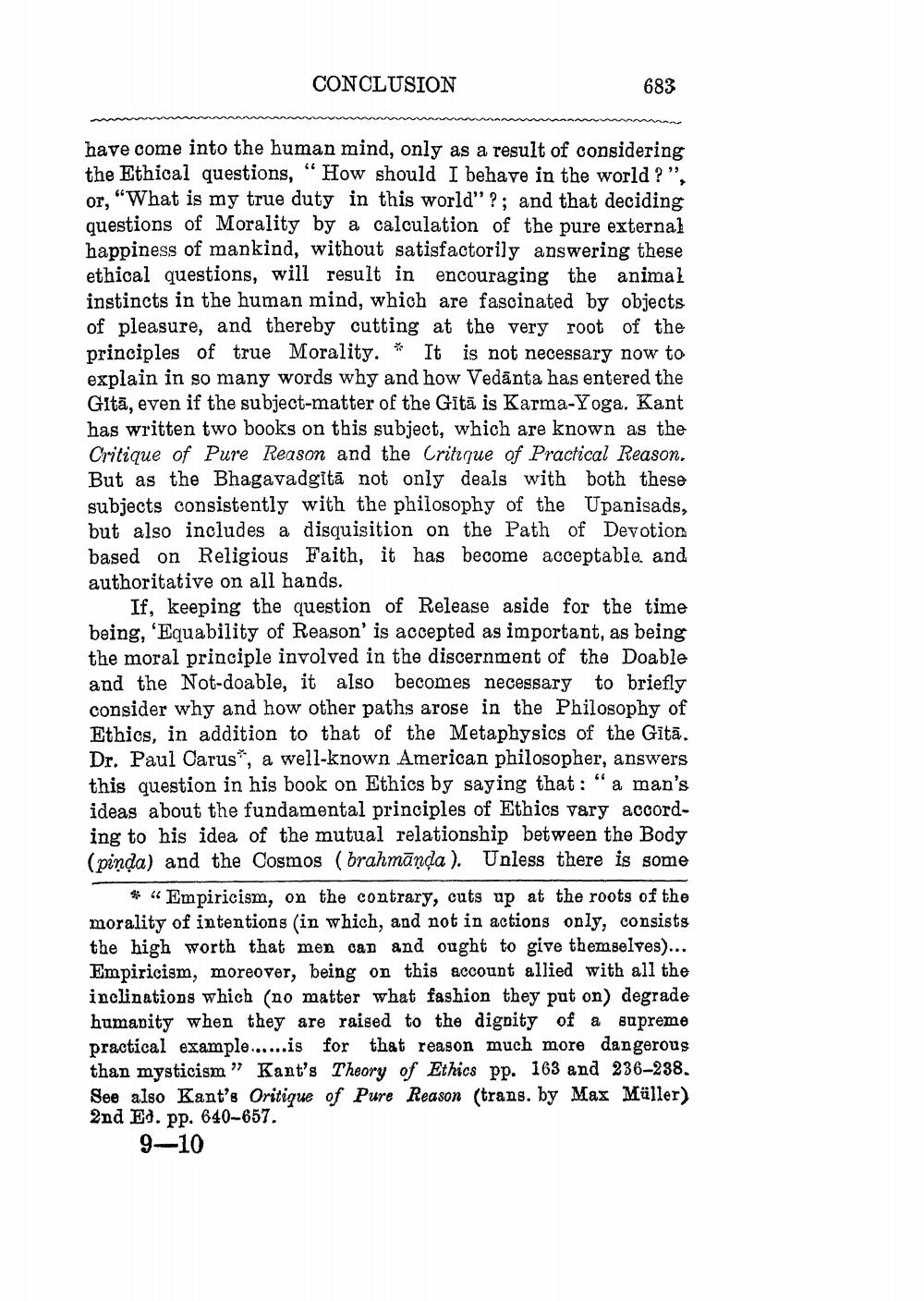________________
CONCLUSION
683
have come into the human mind, only as a result of considering the Ethical questions, “How should I behave in the world ?", or, "What is my true duty in this world"?; and that deciding questions of Morality by a calculation of the pure external happiness of mankind, without satisfactorily answering these ethical questions, will result in encouraging the animal instincts in the human mind, which are fascinated by objects of pleasure, and thereby cutting at the very root of the principles of true Morality. * It is not necessary now to explain in so many words why and how Vedānta has entered the Gitā, even if the subject matter of the Gītā is Karma-Yoga. Kant has written two books on this subject, which are known as the Critique of Pure Reason and the Critique of Practical Reason, But as the Bhagavadgitā not only deals with both these subjects consistently with the philosophy of the Upanisads, but also includes a disquisition on the Path of Devotion based on Religious Faith, it has become acceptable, and authoritative on all hands.
If, keeping the question of Release aside for the time being, 'Equability of Reason' is accepted as important, as being the moral principle involved in the discernment of the Doable and the Not-doable, it also becomes necessary to briefly consider why and how other paths arose in the Philosophy of Ethics, in addition to that of the Metaphysics of the Gītā. Dr. Paul Carus, a well-known American philosopher, answers this question in his book on Ethics by saying that: “a man's ideas about the fundamental principles of Ethics vary according to his idea of the mutual relationship between the Body (pinda) and the Cosmos (brahmānda). Unless there is some
* "Empiricism, on the contrary, cuts up at the roots of the morality of intentions (in which, and not in actions only, consists the high worth that men can and ought to give themselves)... Empiricism, moreover, being on this account allied with all the inclinations which (no matter what fashion they put on) degrade humanity when they are raised to the dignity of a supreme practical example......is for that reason much more dangerous than mysticism” Kant's Theory of Ethics pp. 163 and 236-238. See also Kant's Oritique of Pure Reason (trans. by Max Müller) 2nd Ed. Pp. 640-657.
9-10




